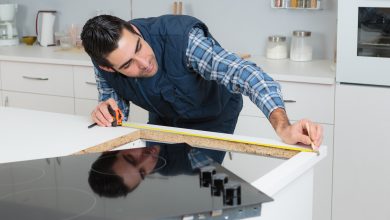Which MERV Rating Filter Should You Use in Your Home

When it comes to selecting the best air filter for your home, you should consider a variety of factors. From the size of your living space to the level of air pollution in your area, understanding the MERV (Minimum Efficiency Reporting Value) rating system and its benefits is key to making an informed decision that will ensure optimal air quality without restricting airflow or increasing energy costs.
- When deciding on the right MERV filter ratings for your home, you must consider the size of your living space, the level of air pollution in your area, and how often you plan to replace the filters.
- The higher the MERV rating, the finer particles are filtered from the air. A high-efficiency filter with a rating above 12 will effectively remove pet dander, dust mites, and some bacteria from your air. But this filter can also restrict airflow, leading to inefficient system performance and increased energy costs.
- For most people living in average-sized homes with a moderate amount of indoor pollutants such as pollen or dust mites, a filter with a MERV rating of 8-11 is recommended. These filters effectively remove large particles and can be changed as often as every 3 months.
- If you live in an area with high levels of air pollution or have allergies or asthma, you should consider using a higher-rated filter (MERV 12-16). Such filters will remove more pollutants but require more frequent replacement.
- For homes with no central air conditioning system and window units that are the primary means of cooling, it is best to use lower-rated filters (MERV 1-7) that do not restrict airflow too much.
- The type of filter you choose for your home will also depend on the size of the living space. For larger homes and those with central air conditioning systems, a higher MERV rating filter is recommended as it will help to ensure that the entire house has clean air circulating throughout.
- The cost of filters can also be an essential factor in choosing the right one for your home. Generally, higher-rated filters are more expensive but require less frequent replacement. Conversely, lower-rated filters are typically cheaper but must be changed more often.
- It’s always best to check with your HVAC contractor or read the owner’s manual before purchasing any filter to know which type is most suitable for your system and lifestyle preferences.
- Additionally, filters should be changed regularly to ensure optimal air quality and system efficiency. Depending on the type of filter you use, replace it every 3 months or when it becomes visibly dirty.
- Choosing the right MERV rating filter for your home is an important decision that should not be taken lightly. Consider factors such as the size of your living space, the level of air pollution in your area, the cost of filters, and how often you plan to change them so you can make an informed choice that best suits your needs.
Conclusion
Choosing the right MERV-rated filter for your home is an important decision that requires careful consideration. By considering factors such as the size of your living space, air pollution levels in your area, cost, and how often you plan to change them, you can make an informed choice that best suits your needs while ensuring optimal air quality. With the right filter in place, you can enjoy improved indoor air quality and efficient system performance for years to come.





